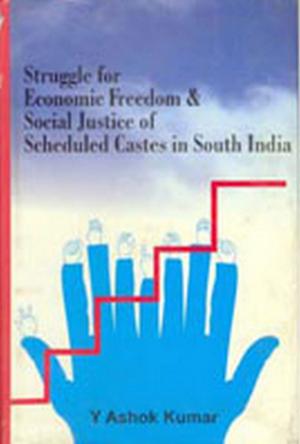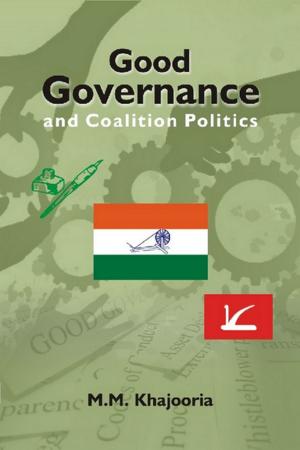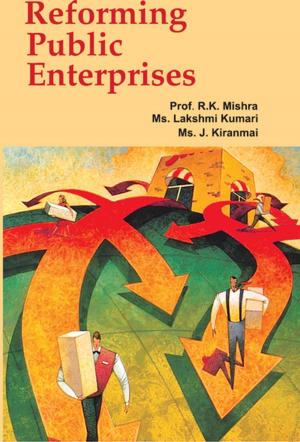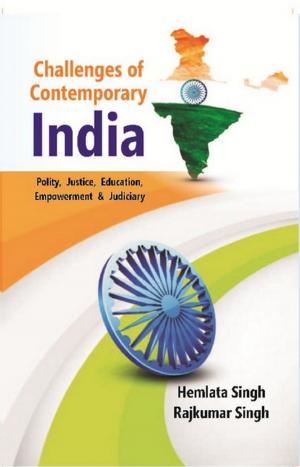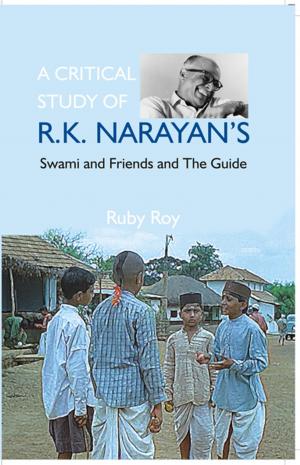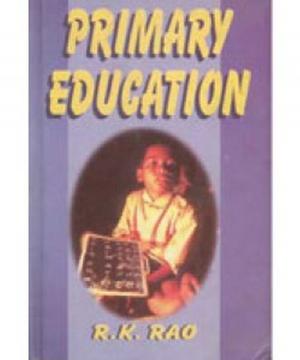Visual Impairment
Nonfiction, Health & Well Being, Health, Ailments & Diseases, Physical Impairments| Author: | Ranjita Dawn | ISBN: | 9789351289357 |
| Publisher: | Kalpaz Publications | Publication: | June 30, 2015 |
| Imprint: | Kalpaz Publications | Language: | English |
| Author: | Ranjita Dawn |
| ISBN: | 9789351289357 |
| Publisher: | Kalpaz Publications |
| Publication: | June 30, 2015 |
| Imprint: | Kalpaz Publications |
| Language: | English |
This work has been undertaken by the author with the view to create an awareness about people with disabilities in general and people with visual impairment in particular and raise certain issues concerning their welfare in the Indian context. The First Chapter highlights the marked changes in paradigms for defining disability from the individual approach or more specifically the medical model to the social approach. This facilitates to understand the differing expressions and manifestations of disability being perceived predominantly as medical or biological or concerned with identity or negotiation of social roles to the social approach theories which were found to be more concerned with structural and material conditions or on culture and representation. The diversity within the broad domain of the various approaches has been discussed in this chapter. The Second Chapter explores Visual Impairment particularly in the Indian context. It also explores the psychological well-being of people with visual impairment. Critical reorientation of perspective has important implications for the manner in which law and policy in relation to disability needs to be developed. It is now been increasingly recognized that the problem does not reside in the person with a disability, but results from the structures, practices and attitudes that prevent that individual from exercising his or her capabilities. In keeping view of this the Third Chapter attempts to investigate into the policy perspectives regarding the education of people with disabilities at the global level as well as in India in specific. It is obvious that there has been marked shift in paradigms with regard to different educational policies and programmes for optimizing the development of people with disabilities by way of special education and integration and ensuring their incorporation into the mainstream society. At the same time, the various backlogs and barriers makes it imperative to undertake more focused and comprehensive efforts for deriving optimum benefits. It is within this perspective that the Fourth Chapter aims to look into the diverse trends and barriers in the education of people with disabilities. It puts special emphasis on The Fifth Chapter addresses various issues relating to numerous challenges of Curriculum Access and Instructional Practices prevalent for people with disabilities with special reference to students with visual impairment. It proposes certain curriculum suggestions for instructing students with visual impairment. The knowledge of mathematics plays a crucial role in our daily life to overcome various difficulties. It helps to cultivate thinking and reasoning skills and lays the foundation for systematic thinking through the numerical and spatial aspects of objects. This holds same for students with visual impairment. In keeping view of this the Sixth Chapter aims to analyze the impact of attitude of blind and sighted students on their mathematics performance and the attitude of mathematics teachers' and its effect on performance of the students in the said subject. In the age of incessant technological advancement there is tremendous demand for incorporation of new and modern programmes and methods in order to ensure greater adaptability with the pace of rapid competition. The same holds true for people with disabilities all over the world. The Seventh Chapter aims to analyze the role of Assistive technology for Blind Students and students with Low Vision. The fundamental importance of teachers' position in the process of learning is simply undeniable. Teachers' attitude towards students with disabilities, particularly those with visual impairment is dependent on several factors. The Eight Chapter explores teachers' role and approach towards students with visual impairment. The Ninth Chapter aims at critically analyzing the existing infrastructure elements for persons with disabilities such as accessible services and facilities and also evaluates and assesses the public transportation services as relevant in the Indian scenario. The Tenth Chapter addresses the numerous issues and challenges concerning employment of persons with disabilities in India. It traces and analyzes the various policy issues concerning their employment and its actual implementation. The Eleventh Chapter attempts to review the concept of rehabilitation for the people with disabilities with special reference to people with visual impairment. It extensively discusses the various legislative measures initiated by the Government of India as well as the Seven National level Institutes set up to cater to the diverse needs of people with disabilities. The Twelfth Chapter offers certain concluding thoughts and scope of future possibilities concerning people with disabilities in India. I am confident that the book will be of immense help to the readers and will play a significant role in creating awareness among the masses about people with disabilities education of students with visual impairment in India.
This work has been undertaken by the author with the view to create an awareness about people with disabilities in general and people with visual impairment in particular and raise certain issues concerning their welfare in the Indian context. The First Chapter highlights the marked changes in paradigms for defining disability from the individual approach or more specifically the medical model to the social approach. This facilitates to understand the differing expressions and manifestations of disability being perceived predominantly as medical or biological or concerned with identity or negotiation of social roles to the social approach theories which were found to be more concerned with structural and material conditions or on culture and representation. The diversity within the broad domain of the various approaches has been discussed in this chapter. The Second Chapter explores Visual Impairment particularly in the Indian context. It also explores the psychological well-being of people with visual impairment. Critical reorientation of perspective has important implications for the manner in which law and policy in relation to disability needs to be developed. It is now been increasingly recognized that the problem does not reside in the person with a disability, but results from the structures, practices and attitudes that prevent that individual from exercising his or her capabilities. In keeping view of this the Third Chapter attempts to investigate into the policy perspectives regarding the education of people with disabilities at the global level as well as in India in specific. It is obvious that there has been marked shift in paradigms with regard to different educational policies and programmes for optimizing the development of people with disabilities by way of special education and integration and ensuring their incorporation into the mainstream society. At the same time, the various backlogs and barriers makes it imperative to undertake more focused and comprehensive efforts for deriving optimum benefits. It is within this perspective that the Fourth Chapter aims to look into the diverse trends and barriers in the education of people with disabilities. It puts special emphasis on The Fifth Chapter addresses various issues relating to numerous challenges of Curriculum Access and Instructional Practices prevalent for people with disabilities with special reference to students with visual impairment. It proposes certain curriculum suggestions for instructing students with visual impairment. The knowledge of mathematics plays a crucial role in our daily life to overcome various difficulties. It helps to cultivate thinking and reasoning skills and lays the foundation for systematic thinking through the numerical and spatial aspects of objects. This holds same for students with visual impairment. In keeping view of this the Sixth Chapter aims to analyze the impact of attitude of blind and sighted students on their mathematics performance and the attitude of mathematics teachers' and its effect on performance of the students in the said subject. In the age of incessant technological advancement there is tremendous demand for incorporation of new and modern programmes and methods in order to ensure greater adaptability with the pace of rapid competition. The same holds true for people with disabilities all over the world. The Seventh Chapter aims to analyze the role of Assistive technology for Blind Students and students with Low Vision. The fundamental importance of teachers' position in the process of learning is simply undeniable. Teachers' attitude towards students with disabilities, particularly those with visual impairment is dependent on several factors. The Eight Chapter explores teachers' role and approach towards students with visual impairment. The Ninth Chapter aims at critically analyzing the existing infrastructure elements for persons with disabilities such as accessible services and facilities and also evaluates and assesses the public transportation services as relevant in the Indian scenario. The Tenth Chapter addresses the numerous issues and challenges concerning employment of persons with disabilities in India. It traces and analyzes the various policy issues concerning their employment and its actual implementation. The Eleventh Chapter attempts to review the concept of rehabilitation for the people with disabilities with special reference to people with visual impairment. It extensively discusses the various legislative measures initiated by the Government of India as well as the Seven National level Institutes set up to cater to the diverse needs of people with disabilities. The Twelfth Chapter offers certain concluding thoughts and scope of future possibilities concerning people with disabilities in India. I am confident that the book will be of immense help to the readers and will play a significant role in creating awareness among the masses about people with disabilities education of students with visual impairment in India.

